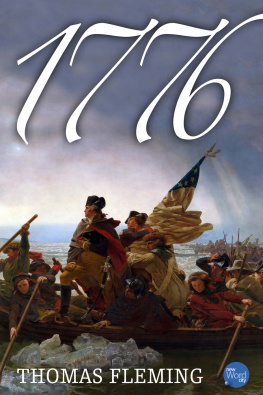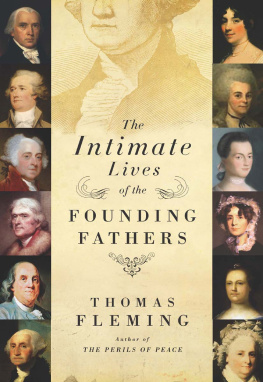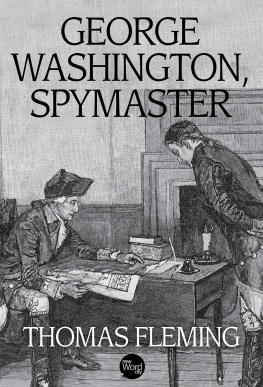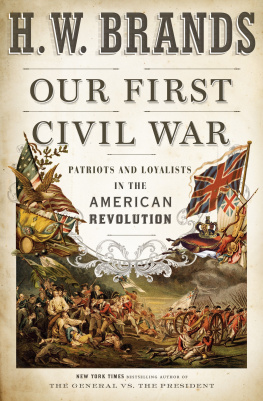THE LOYALISTS: TAKING BRITAINS SIDE IN THE AMERICAN REVOLUTION
From a swirling snowstorm at 4:00 a.m. on December 31, 1775, an American column emerged to attack the fortified city of Quebec. They were led by Brigadier General Richard Montgomery, the Irish-born commander of American forces in Canada. A blast of cannon and musket fire from a frame house, which had been converted into a stronghold, sent Montgomery and fourteen other Americans toppling into the snow, their bodies riddled with metal. The rest of the column fled. The Americans had suffered their first serious defeat of the Revolutionary War.
The commander and owner of the house was John Coffin, whose family had come to New England in 1642. By 1774, no less than twenty families of Coffins lived in or near what is now Washington Street in Boston. Almost every member of the family fiercely disapproved of the Revolutionary movement in Massachusetts and resisted it strongly. Two of them cut down the liberty tree that the revolutionaries had raised in their neighborhood. For this and other acts of opposition, the Coffins were driven from Boston.
In 1775, before the fighting broke out at Lexington, John Coffin left Boston aboard his own schooner, the Neptune, bound for Quebec. With him he took his household goods, his wife, and his eleven children. When the Americans invaded Canada, he was enraged to see the Revolution lapping on his doorstep once more. Although he was forty-six years old, he was among the first to volunteer for militia duty to defend Quebec.
A nephew, also named John Coffin, played an even more active role in the war. A talented cavalry commander, he fought his fellow Americans with considerable success, particularly when the fighting shifted to the South. In the Battle of Eutaw Springs in South Carolina, he almost wiped out the opposing American cavalry regiment, capturing its leader, Colonel William Washington, the second cousin of General George Washington. When Coffin saw one of his men about to run a saber through the wounded colonel, he struck up the mans weapon and escorted the dazed Washington to his tent, where they shared dinner.
Most New England Loyalists were not as eager for war as the Coffins. There werent enough of them to sustain a resistance movement. In the Carolinas, Georgia, New Jersey, and New York, Loyalists equaled the rebels in numbers. The result was a savage civil war. New Englands Loyalists depended on the British to fight for them, and they were cruelly disappointed when the Royal Army failed to protect them or take vengeance on the rebels, which more than one persecuted Loyalist called down from heaven.
Loyalist was the name they chose for themselves. The rebels called them Tories. This derogatory term had previously been reserved for the supporters of the predominantly Catholic Stuart line of kings, whose reign ended in Englands largely bloodless revolution of 1688. For well over 100 years, it was the fashion among American historians to accept Thomas Paines 1776 declaration, Every Tory is a coward... fear is the foundation of Toryism. But more recent historical research has revealed men like the Coffins. Many other New England Loyalists testified to their political convictions with equally impressive if not as warrior-like courage.
Pugnacious John Malcolm, a native Bostonian turned Royal customs official, was seized by a mob on January 25, 1774. In subzero weather, he was stripped of his clothing, tarred and feathered, and dragged around town on a sled. A halter was placed around his neck. He was hogtied and taken to the liberty tree. There, he was threatened with hanging unless he resigned his office and cursed Thomas Hutchinson, the royal governor of Massachusetts and the colonys most distinguished Loyalist. Malcolm stubbornly refused to do either. The mob then poured several quarts of tea down his throat. He was beaten with a rope. He still refused to resign or curse the governor. Only when someone produced a knife and prepared to cut off his ears did he agree to damn Hutchinson. When the mob finally deposited him at his home around midnight, he was half frozen, his arm was dislocated, and he was semiconscious. But he remained firmly committed to the king.
Even more impressive is the story of Moses Dunbar of Wallingford, Connecticut, who was hanged for high treason on March 19, 1777. Dunbar had been converted from the Congregational to the Anglican Church. Commitment to the Anglican religion was probably the largest single reason why New England Loyalists refused to support the rebellion. Early in 1776, Dunbar was attacked by a mob of about forty men and forced to sign a paper that he later said contained many falsehoods. He still refused to support the Revolution. He offered to live in voluntary confinement on his farm, but he was jailed in New Haven for fourteen days before being released. Fearing for his life, he fled to British-held Long Island, where he became a captain in a Loyalist regiment. Returning to see his family, he was betrayed by a friend and condemned to death. He died with bravery, declaring, From the very bottom of my heart I forgive all my enemies and earnestly pray God to forgive them all.
Sixteen-year-old Walter Bates, who lived near what is now Darien, Connecticut, helped row his Loyalist older brother to Long Island, where he joined the British army. Apprehended as he returned the boat to a local cove, he was taken before a committee of safety and ordered to tell everything he knew about how Loyalists were traveling across Long Island Sound. He refused to say a word. The committee permitted a mob to drag him to a nearby creek, where he was stripped of his clothes and tied to a tree while mosquitoes bit him for the better part of two hours. He still declined to talk. He was threatened with a hundred lashes and a noose. He still said nothing. Someone suggested putting him on a log in the local sawmill and letting the saw cut him in half. His mouth stayed shut. Finally, they dragged him before a man who had a reputation as a hanging judge. Looking at the boy, his body swollen from mosquito bites, the judge praised his courage and discharged him.
The motives of the Loyalists were almost as varied as their backgrounds. Most Anglicans supported the king as a matter of conscience. Others were frank about their self-interest. On hearing the news of the Battle of Lexington and Concord, Joshua Loring exclaimed, I have always eaten the Kings bread, and always intend to. Loring was a retired naval captain and member of the governors council. He became the British armys commissary of prisoners, and his blonde, blue-eyed wife Betsy became the mistress of Sir William Howe, the armys commander. Other Loyalist ladies traveled a similar route. John Hancocks former mistress Dorcas Griffiths was left behind in Boston when Hancock departed for Philadelphia to become president of the Continental Congress. Griffiths found consolation with a marine captain wounded at Bunker Hill. She nursed him back to health and abandoned both herself and her political principles to her suffering British hero.
For Thomas Hutchinson and many of the men who supported him in Massachusetts, Loyalism was an intellectual and emotional necessity. Hutchinson did not see how imperial authority could be divided or shared as American rebels like Benjamin Franklin were claiming it could and should be. Behind this closely reasoned argument was an emotional fact. Hutchinson was a member of a small group of families that had held high office in Massachusetts for decades. One historian said the list of Massachusetts Loyalists read almost like a beadroll of the oldest and noblest families concerned in the founding and building of New England civilization. They were an American aristocracy, and their power and wealth were threatened and finally destroyed by the mobility, as Peter Oliver, chief justice of the Superior Court of the province of Massachusetts, called the Revolutionists.















